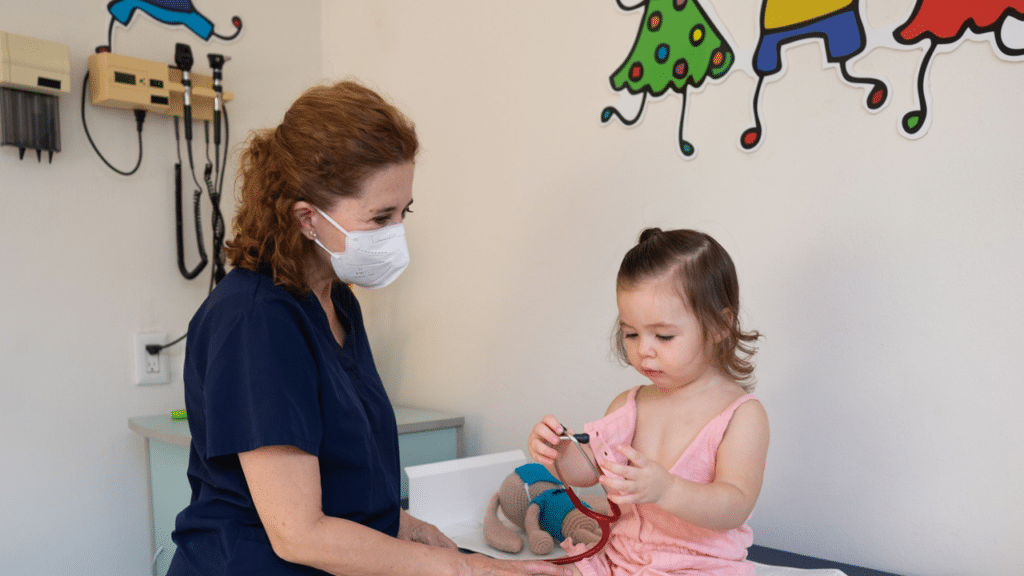How Nurses Can Provide Emotional Support to Patients and Families – 7 Powerful Ways

When someone gets injured or unwell enough that they need medical care at a hospital or health centre, it can be a very stressful moment for that person as well as for their relatives and loved ones. That is where nurses can come with emotional support.
Nurses, doctors and support staff have an important duty to care not just for the physical health needs of patients, but to also consider their emotional wellbeing and comfort during a challenging period.
This article explains proper skilled ways that nurses and support workers can provide helpful emotional support and support to patients going through illness or injury treatment, as well as worried family members.
We will go over:
- Listening caringly
- Explaining test results and next steps clearly
- Building connection and trust
- Respecting patient dignity
- Suggesting resources and support groups
- Placing borders
By following industry codes of conduct around ethics and privacy while also developing true empathy and compassion, nurses and healthcare providers in any setting can strongly influence peoples’ care experience for the better.
Patients and families facing medical conditions especially value emotional support together with clinical treatment.
What is emotional support in nursing
Emotional support in nursing means providing comfort, understanding, and a listening ear to help patients and their families cope with difficult feelings like fear, sadness, and anxiety that often come with being sick or injured.
This helps patients and family member cope with the fear, anxiety, sadness, anger, grief, and other difficult feelings that often comes with injury, illness, staying in the hospital, and going through difficult medical process.
A person may look strong on the outside, but may need another’s emotional support.
Mary Wathkins
Why is emotional support important in nursing?
It is understandable for anyone confined to an emergency room bed or treatment centre to feel uneasy, angry, discouraged, scared, lonely or disturbed by the lack of control.
They are in an unknown environment, experiencing pain and doubt.
Weak moments like undergoing tests or treatment side effects often increase difficult emotions.
It is also hard on relatives and friends keeping vigil at the hospital. They want their loved one to get better but cannot make it happen faster. Families often feel:
- Helpless and worried about bad possibilities
- Left in the dark with little updates.
- Stressed overpaying for medical bills
- Tired from little sleep at the bedside
- Sad seeing their loved one so sick.
- Like they must choose between work and being there
It is extremely tiring and overwhelming supporting someone at the hospital while the rest of regular life keeps going on too.
The situation brings up lots of difficult feelings for the whole family.
Only specially taught doctors can officially identify or help fix mental health problems.
But nurses and medical helpers do very key work caring for patient feelings too. Feeling afraid, worried, angry, lonely, or mixed up often happens along with getting sick or injured.
So, while doing main health duties, good nurses also spend time:
- Listening to patients share hard feelings.
- Giving encouragement when patients seem down.
- Answering questions to ease confusion.
- Explaining things in calming ways
- Suggesting hospital helpers like counsellors if patients need extra support for emotions.
Caring for the heart and mind together with the body this way helps patients feel better overall. So, nurses play a big role in emotional health too during medical situations.
Failing to recognise worried minds and heavy hearts can negatively impact the care experience.
On the other hand, small thoughtful gestures that show awareness of patient feelings do help a lot. Things like:
- Giving clear, honest information about illnesses and treatments in respectful ways
- Listening patiently to worries and frustrations.
- Showing kindness and empathy for how hard the situation is
Effort like this demonstrates person-centred care, meaning seeing and caring for the whole human going through health struggles – not just their physical symptoms.
This type of spirit makes patients feel valued.
It builds patient, family and provider relationships rooted in understanding, dignity, and shared humanity.
1. Listening with Compassion

Often, what patients or family members desire most is simply having someone gently ask how they are holding up or feeling, then truly listen without judgement as they voice worries, air grievances, ask honest questions or even vent anger rooted in fear or tiredness.
Some hospital staff focus only on medical tests and “fixing” health issues.
They ignore that sick people most need comfort, support, gentle explanation and listening first before anything else.
When nurses and doctors seem rushed, impersonal, or not interested in patients fears and feelings, it makes patients not trust them as much.
People get unwilling to follow instructions or do what they are told to do.
But nurses and staff who kindly spend even 5 minutes just listening to worries, showing basic human understanding of how awful and scary it feels, and reassuring that they hear concerns without dismissing them provides huge relief.
Even if they cannot solve everything on the spot, listening and showing caring connection makes a positive difference.
Patients realise they have an advocate who sees them as scared human beings first, not just chart notes.
When nurses first show caring and understanding, it makes patients feel more willing to follow medical instructions later too. A little initial thoughtful kindness brings major cooperation gains over time.
Patients have more motivation to stick to treatments when staff treat them thoughtfully first. So early heartwarming compassion boosts the full healing process tremendously.
Caregivers who listen to patients are more effective. By understanding their view and concerns, caregivers show respect and help ease any panic or worries.
This builds trust and makes patients more open to following advice and instructions later on.
2. Explaining Clearly and Honestly

Doctors and nurses use big, difficult words to talk about health issues, medical tests, treatments, and medicines.
This terms often ends up confusing patients who do not have medical backgrounds themselves.
Most regular people know little about the complex healthcare system.
So, they find it hard to get what all the difficult technical terms and words being thrown around mean.
As a result, patients frequently worry about things like:
- Agreeing to future steps in their care without adequately understanding procedures
- Not knowing whether their symptoms or healing pace seems normal.
- Feeling unintentionally under pressure to make big health decisions without easily knowing all that medical jargon describing their unique situation. It is foreign to them.
Nurses good at explaining medical info into familiar layperson terms help prevent such fears through education.
Helping patients understand medical terms in simple ways makes them feel better. Do not use hard words, use easy examples instead.
It can be as fundamental as making complex health care stages clear. This helps make them feel better.
Nurses need to be truthful but gentle when telling patients about their diagnosis, especially if it is serious or long-term.
Responding kindly to concern keeps dignity intact for everyone involved, even if the outcome is not positive.
People Also Read: What is Mandatory training and why is it important in health care.
3. Building Healthy Bonds and Trust

Being in the hospital puts patients in a hard spot. Doctors and nurses know all the things while patients feel powerless and nervous. This difference happens a lot.
But nice nurses work hard to reduce this through friendly actions showing “we are all just normal people” closeness to scared patients.
Chatting about life outside hospitals, gently joking once in a while to relax tough moods.
Also, proudly sharing personal positive stories on day-to-day activity all increase the ease for people going through tough times.
Instead of seeming cold and proud, thoughtful nurses connect heart-to-heart as fellow humans with struggling families and patients needing their skills. This encourages teamwork and quiets fear slowly.
Little talks about hometowns, favourite sports groups, explaining tools in effortless ways or showing new nurseries serve to make doctors and nurses seem more caring and kinder.
Chatting this casual way builds connection, familiarity and “we’re in this all together” team attitude between the medical leaders and scared patients.
This creates comfort, relief and builds trust for emotional confidence. It encourages worried sick people and their families that care will focus first on what is right for them.
The good mood created makes patients feel they have a caring someone in their corner against scary illness. Not rushed uncaring hospital workers shouting at them in hard situations.
Older family members in particular value help knowing palliative care or end of life care options.
Talking over such difficult sensitive topics needs patience, gentleness and respect.
Rushing struggling relatives facing tough choices fails to give full emotional support when they badly need someone in their court.
4. Upholding Patient Privacy and Dignity
Having multiple medical exams or needing help with bathing from care workers can embarrass patients who already feel very exposed and helpless in the situation.
However, dignity-focused nurses comfort patients with privacy through respectful behaviour and remind them they still deserve personal space even when needing assistance.
Using sheets, dividers or curtains to cover patients’ bodies, only uncovering areas being actively helped, explaining carefully ahead why procedures are needed, asking first before any physical contact, talking softly about private topics, closing doors to reduce noisy hallway chaos and other basic adjustments maintain proper respectful limits.
They signify attention to prevent over-displaying people who already feel very exposed and helpless.
Similarly, talking about patients only with approved people or using their desired names respects their privacy.
Offering Resources Besides giving firsthand medical care, nurses can also connect patients and families to useful resources outside direct doctor treatment plans.
Sometimes patients or relatives face extra challenges around a health crisis that increase sadness, worry or difficulty coping day-to-day.
Examples might be needing counselling over emotions, lacking transportation for hospital visits, money worries over medical bills, needing special tools to regain independent functioning after injury or surgery, etc.
Resources vary by care context but may include things like:
- Providing information pamphlets explaining self-care tips for certain treatment side effects.
- Helping set up tele-appointments with follow-up care specialists after discharge.
- Arranging meal delivery vouchers for relatives juggling work and bedside support.
- Connecting cancer patients with survivor networking groups for advice and solidarity.
- Distributing disability parking permission and home adjustment guides.
- Setting up video calls with hospital chaplain spiritual counsellors or mental health therapists.
While not all medical helpers can access every resource directly themselves, they still help by telling patients and families what is available or sending them to hospital social workers who know community options deeply.
Simply pointing troubled patient and family members towards any next step rather than leaving them feeling fully unsupported is sufficient assistance.
5. Establishing Healthy Boundaries

In highly emotional situations, well-intentioned nurses and support staff might feel tempted to overextend themselves out of abundant empathy.
However, every caregiver must recognise personal limit in resolving all patient or family member fears, setbacks and grief coming from challenging diagnosis, guarded scenarios or the uncertainty of outcomes.
Times of sickness or injury cause stress. Even close family members can feel paralysed by big sudden life changes from health crises.
Nurses arrive to work each day. They record health signs and offer care relief when possible. Nurses also lift worried minds.
Nurses act like strong, steady pillars boosting emotional wellness.
They show goodness of purpose, caring, adaptability, honesty and inner strength. This gives back emotional strength to face trauma impacts.
Through demonstrating healthy borderlines, nurses teach patients and loved ones to direct feelings effectively while also applying self-care.
When injury or illness causes “out of control” chaos, nurses offer reliable calm to patients and families. They provide stability during upsetting, uncertain situations.
Patients know that nurses will return each work shift, no matter what happens next. They are dependable.
It is not that nurses have magical solutions to instantly fix everything and make it all better.
But when it feels like their world is turning really scary over health worries, people remember nurses being there to comfort them over the long haul.
Offering caring support through the hardest, most difficult nights of pain and unknowns.
Just having someone kind consistently present brings huge relief.
Families notice that backup nurses give as much as any medical treatments in helping them make it through tricky periods of sickness or surgery recovery.
Their loyal, compassionate check-ins – not fancy equipment alone – can hold families steady through deep crises of health and independence loss that else feel very lonely.
Simply sticking around throughout the long haul gives patients courage.
Patient and family emotions reasonably run high and low during medical troubles.
Yet no matter how desperate or demanding individuals become in seeking control or escape, nurses must cautiously refrain from overpromising unrealistic outcomes.
Instead, they can suggest useful resources for coping, reconciling feelings or gaining perspective.
Likewise, just as nurses should avoid becoming personally trapped in patient biases or family squabbles, they must also remember that patient flattery or excessive self-disclosure about personal lives remains inappropriate.
Clear professional connections centered on reliable medical support assure all parties feel respected.
In essence, nurses should explain what types of emotional support they can realistically give patients and families over long health struggles. This means not overpromising more than they can provide.
Keeping a balanced position on what emotional support they can give, then directing energies there, helps ensure nurse-patient care relationships stay:
- Focused on what nurses can directly assist with based on skills
- Possible outlooks without underestimating health care burdens.
- Sustainably maintained without quick burnout even with ongoing needs amid hard times.
The goal is defining reasonable support then focussing effort in those lanes for optimal stability.
6. The Power of Presence

When there is no cure and the future’s uncertain, nurses and caregivers help patients and families cope with difficult emotions about losing health, abilities, freedom or even time.
No official rulebook exists for easing someone’s grief over lost hopes or approaching end of life.
Yet nurses deeply rooted in calm caring, patient listening, straight-forward explaining and honouring what makes us all human can still lift patients’ saddest hours.
They do this through small gestures of affection and the meaningful gift of simply showing up kindly.
Research shows that when asking family members who helped most giving emotional support to their loved ones during final care days before death, the most frequently named person offering behind-the-scenes comfort is nurses. Not fancy doctors. Kind nurses.
That speaks to qualities of the nursing profession directly serving patient emotional needs beyond administering medication or changing bandages alone. Nurses sit through sorrow keeping vigil, so none withstand the passage braving loss alone.
They provide stability amid disorder. Also, they answer odd hour questions and calm midnight worries. They greet not with chart first but with empathy.
And in doing so, nurses quietly send an impactful message to people suddenly facing major life or identity changes against their will from health situations.
It reminds them that even when everything normal now hangs delicately out of their control, they still have advocates caring to preserve their dignity and humanity throughout the uncertainty ahead.
The message that comes across clearly from compassionate nurses is:
“You matter greatly as a person. Your pain worries me. I promise to respect your dignity through this sickness. You are not alone – we will face whatever happens next together.”
People Read: Things to know before choosing a career in elderly care
In Conclusion: Nurse Emotional Support
These are 7 ways nurses can emotionally support patients and family members. This especially use for those into palliative care and end of life care.
You can check our end of life training or palliative care training to see how this helps.
During times of stress over sickness or injury, even close family can feel helpless by the rapid life change.
Nurses arrive each day to record health signs, offer care relief where possible and lift worried minds. Nurses operate as giant steady pillars boosting emotional wellness.
They do this by expressing basic goodness of higher purpose, caring, adaptability, truth and inner strength. This boosts emotional wellness against the impact of distress. They represent ultimate emotional backup.
Healing happens most through deeply personal human connections in health care settings. Technology and medicine help the body. But caring nurses uniquely aid the heart and mind.
Research shows that emotional support improves how well patients progress and how content they feel with treatment.
So by intentionally making emotional health an equal focus alongside physical health, kind nurses carry on an honourable tradition of caring for the whole human – not just textbook symptoms.
This comforts suffering in ways no lonely pill ever could.
Let us Help you
We’ll help you find the right course for your needs. Tell us a little bit about your situation and what you would like to achieve.
We’ll get back to you within one working day.
